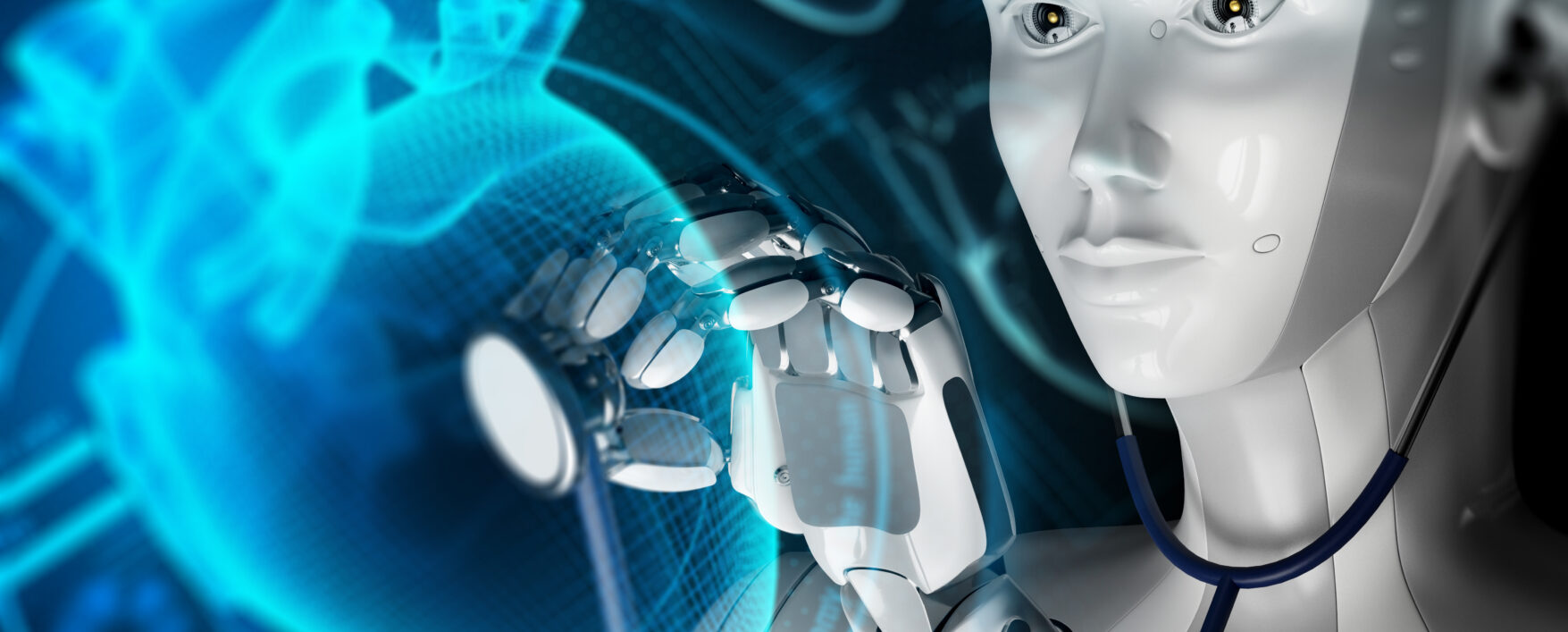We’ve all seen The Terminator, Robocop or Black Mirror, and although this sort of dystopian, robot-esque future seems light years away, is it really? Could this sci-fi, machine-dominated society arrive sooner than we think? Is it already here?
Well, artificial intelligence (AI) is here, and it’s thriving, particularly in the healthcare sector.
In essence, AI is the ability of a computer or a machine to learn and demonstrate human intelligence, and is frequently described as the “new electricity”, as it is poised to transform the world we live in today, just as electricity once did.
By 2025, research predicts that global AI healthcare spending will reach $36.1 billion. By this point, it will have completely revolutionised the way nursing is carried out.
AI can already do some pretty remarkable things. It can make realistic phone calls, find missing children and look through walls. It can write film scripts, create recipes and there are even weaponized drones that fly in swarms and communicate with each other using AI – scary right?
AI within healthcare is rather extraordinary too, including:
Robot-assisted surgery
It may sound like something out of a sci-fi movie, but robots are being used in surgery as we speak. In 2018, more than 1 million procedures were performed worldwide with the da Vinci, the most popular surgical robot in use today, which resembles a giant, four-armed tarantula. Surgical robots offer more precise, less invasive movements than human hands and traditional tools, and can notice reactions in a patient invisible to the human eye, then make the necessary adjustments.
Robot nurses
The number of nursing robots being deployed is also increasing at an astonishing rate, and they’re becoming vital in some countries, as they compensate for the nursing labour shortage. These machines help patients move, reduce their stress and remind them to take their medicine. By monitoring and analysing data on patients with incredible precision, they can offer customised care, arguably more personalised than human nurses can.
Remote monitoring and early diagnosis through wearable tech
With wearable health monitoring devices, like smart watches, doctors can monitor patients remotely. The non-invasive devices can alert patients if they need to see a doctor, and can also alert hospital staff if an emergency occurs with the patient, giving them time to send an ambulance.
Wearable devices are being utilised for early diagnosis. Researchers have recently developed a wrist-worn device that can continuously collect and examine circulating tumour cells (CTCs) in the blood, and wearable tech with the ability to predict Alzheimer’s Disease and detect heart disease.
Additionally, AI is being used for: administrative assistance (the tasks every healthcare professional hates); health screenings and AI-enabled genomics. As we speak, AI researchers are trying to predict where the rapidly-moving coronavirus might go next, in order to stay one step ahead and limit the spread. One research centre is also using AI to identify molecules that could form effective treatment against the outbreak.
With all this in mind, it’s evident that AI and robotics are already a monumental part of the healthcare sector. But, how do nurses and healthcare professionals feel about this rapid change?
According to a new study by KPMG, 40% of healthcare industry execs feel the industry is moving too slowly when it comes to adopting AI, and even more say their workforces do not have the necessary skills to facilitate that adoption. More than half believe that AI has increased, rather than mitigated, the costs of healthcare. However, just under 90% said AI is already increasing efficiency in their systems and even more said it has increased patients’ access to care.
Will the role of a nurse soon become redundant?
It is estimated that 800 million workers worldwide could be replaced by robots by the year 2030. This robotic revolution is already worrying a lot of people, but how concerned should nurses be about their jobs becoming redundant?
In a handful of countries, like Japan where there is a severe lack of nurses, AI is being used to replace them all together. However, the majority of AI is being used to support nurses and healthcare workers. As robots learn to perform more nursing functions, such as ambulance support, vital signs measurement and medication administration, they will be of great help to nurses needing assistance. Research suggests that 8-16% of nursing time is spent on non-nursing activity and tasks that should be delegated to others, so with robotic support, nurses can take this time back and spend more of it with patients.
It is without question that no matter how technologically advanced robots become, they are not poised to completely eradicate the human nurse role. Can you replace empathy? Compassion? Kindness? The ability to put patients at total ease? A friendly conversation to keep them calm? A hand in a time of need? That is the sort of stuff that is irreplaceable, especially by AI.
Rather than be fearful of the future of AI and its implementation in the healthcare sector, we should be excited. We should be thrilled at the thought of additional help. Most importantly, we should be ecstatic at the thought of improved patient care and hopefully, more lives saved.


